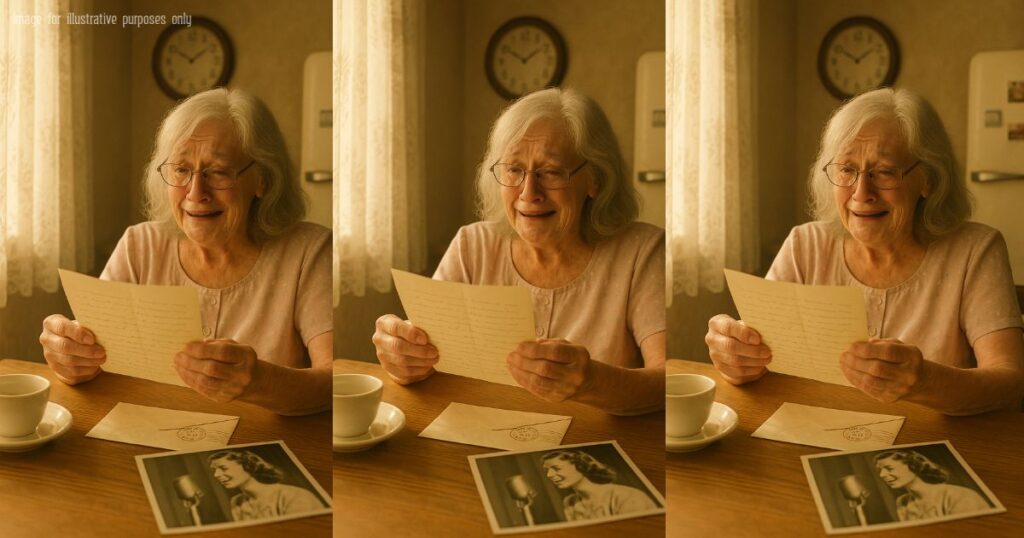The morning I called Clara back, I made sure my voice didn’t tremble.
I set my tea down. Brushed my hair. Sat by the window where the light was soft. She answered on the third ring.
“Hi, Mom.”
Not rushed. Not distracted. Just… her voice, full and steady. Like mine used to be, before time hollowed things out.
“Hi, honey.”
There was a pause. But not an awkward one. A quiet, respectful space.
Then she said, “I listened to all three episodes. Twice. That story about the trucker who missed his daughter’s recital because of the snowstorm? It made me cry.”
“He called back the next day to say she forgave him,” I said. “I never aired that part.”
“You should.”
We talked for forty minutes. Not about grandkids or bills or who forgot to send birthday cards. Just stories. Real ones. The kind we used to share in kitchens over cereal boxes and half-packed lunch bags.
Before we hung up, Clara said, “You know, you still sound like morning.”
I wrote that down. In ink.
That weekend, I recorded another story. The Christmas blackout again, but fuller. I added the part about how the janitor lit candles around the studio, and how I sang even though I hadn’t in years. I talked about fear and beauty showing up together sometimes. How when everything goes dark, the smallest voice can feel like a cathedral.
That episode went viral.
Thousands of listens. Shared by news anchors, music teachers, young moms who didn’t know what AM radio even was. They called me “the radio grandma.” I didn’t mind.
One comment read: “I didn’t grow up with Mary in the Morning. But I wish I had.”
Another: “Listening to her is like remembering something I never knew I lost.”
People started writing in again. Emails, yes—but letters, too. Real ones. With stamps. Some enclosed photos. One was from a woman holding her newborn beside an old boombox. “Starting our mornings right,” she wrote.
KMKC offered me a regular segment.
Every Tuesday and Thursday, five minutes. Just me. Telling stories. Talking to the empty room like it was full. Because now, I knew it was.
They even played my voice before the news.
“Here’s what’s good today.”
On the third Thursday of the month, our senior complex hosted a “radio night.” They set up speakers in the community room. Rolled in extra chairs. Folks came with sweaters, thermoses, tissues.
They listened.
Some closed their eyes.
Some mouthed the words with me.
At the end, I played an old clip—me from 1980, reading a poem about late autumn and missing your mother’s hands.
Margie reached for mine. Held it tight.
When it finished, no one clapped.
But one man, Harold—he used to be a dentist—stood up slow and said, “Thank you for giving us a sound that stayed.”
I nodded. I couldn’t speak.
Last week, I got a postcard from Tommy.
Not the old trucker. A boy named after him.
It was Denise’s daughter.
She wrote: “He’s eight now. We listen to your show in the mornings. He says your voice makes him feel safe. Thank you for still being here.”
Still being here.
It echoed.
Tonight, I’ll sit by the window with my tea.
The radio doesn’t work anymore. But that’s alright.
Because the stories do.
And I’ll say it again, one more time, into the soft light of evening, for anyone who might still be listening:
“It’s another morning, folks. And you’re not alone—not today. Not ever.”
🎙️ The end.
“Some voices fade. Hers didn’t.”
If this story touched your heart, consider sharing it. Someone out there might need to hear it today.
[If this story stirred a memory or made you feel seen, maybe someone else needs it too.]


